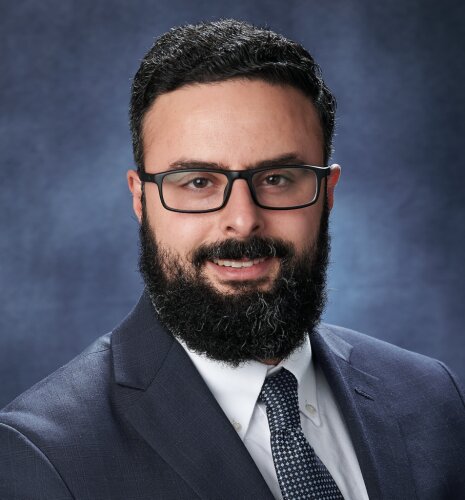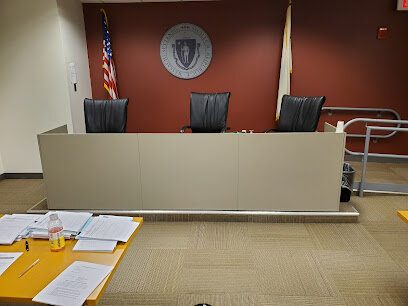Best Drug Crime Lawyers in Connecticut
Share your needs with us, get contacted by law firms.
Free. Takes 2 min.
Or refine your search by selecting a city:
List of the best lawyers in Connecticut, United States

About Drug Crime Law in Connecticut, United States
Drug crime law in Connecticut covers a wide range of criminal offenses involving controlled substances, including possession, distribution, sale, manufacturing, and trafficking of illegal drugs or prescription medications obtained unlawfully. Connecticut enforces both state and federal drug laws, and penalties for violations can range from fines and probation to lengthy imprisonment, depending on factors like the type and quantity of drug, prior offenses, and the circumstances of the alleged crime. The state has special rules for specific substances, and certain offenses may carry enhanced penalties, especially when occurring near schools or involving minors.
Why You May Need a Lawyer
Facing drug crime charges in Connecticut can have serious and lifelong consequences. You may need a lawyer in situations such as:
- Arrest for simple possession of illegal drugs or unauthorized prescription medications
- Being charged with intent to sell or distribute drugs
- Facing accusations of drug manufacturing or trafficking
- Being investigated for involvement with a drug-related offense, even if not formally charged
- Contesting evidence found during a search or after a vehicle stop
- Negotiating plea agreements or alternative programs
- Seeking expungement or record sealing after conviction
- Appealing a conviction or sentence related to a drug crime
An experienced drug crime lawyer can help you understand your rights, navigate court procedures, challenge improper police conduct, and work to minimize or avoid penalties.
Local Laws Overview
Connecticut’s drug laws are codified primarily in the Connecticut General Statutes, Title 21a and Title 53a. Key points include:
- Controlled Substances Schedules: Connecticut classifies drugs into five schedules based on their potential for abuse and medical use, with Schedule I being the most strictly regulated.
- Possession: Even minor possession of illegal drugs can result in criminal charges. First-time possession of small amounts may be a misdemeanor, but repeat offenses or possession of larger quantities can be felonies.
- Possession with Intent to Sell: Penalties increase for possession with intent to sell, distribute, or manufacture. These are often treated as felonies and may carry mandatory minimum sentences depending on the substance and amount.
- School Zones: Offenses committed within 1,500 feet of schools or daycare centers can lead to enhanced penalties, even for first-time offenders.
- Medical Marijuana: Connecticut allows qualified patients to use medical marijuana, but unauthorized use, possession, or distribution remains illegal.
- Decriminalization of Small Amounts of Marijuana: Possession of a small amount of marijuana for personal use is considered a civil infraction rather than a criminal offense, but larger amounts or distribution-related offenses are still crimes.
- Prescription Drugs: Misuse of prescription medication, such as possessing pills without a valid prescription or forging prescriptions, is prosecuted under Connecticut drug laws.
Frequently Asked Questions
What happens if I am caught with a small amount of marijuana in Connecticut?
For adults, possession of less than 1.5 ounces of marijuana is generally treated as a civil penalty and not a crime. Fines may apply, but criminal charges may result for larger quantities, repeat offenses, or intent to distribute.
Can I be charged for having someone else's prescription medication?
Yes, possessing prescription drugs without a valid prescription in your name is illegal and can result in criminal charges.
What are the penalties for selling drugs in Connecticut?
Penalties vary widely depending on the type and quantity of drug, the location of the offense, and prior criminal history. Felony charges may include years of imprisonment, especially if the offense occurs near a school or involves a minor.
Is medical marijuana legal in Connecticut?
Medical marijuana is legal for qualified patients with specific conditions and a valid permit, but unauthorized possession, use, or distribution is still a crime.
What should I do if I am arrested for a drug crime?
Remain calm, exercise your right to remain silent, and request to speak to a lawyer as soon as possible. Avoid answering questions without legal representation.
Can drug charges in Connecticut be expunged?
Some drug offenses may be eligible for expungement or record erasure, especially if you complete a diversionary program or if the charge is dismissed. Eligibility depends on the offense and your criminal history.
What is a diversionary program?
Diversionary programs are alternatives to prosecution for certain offenders, such as drug education or treatment programs. Successful completion can lead to dismissal of charges in some cases.
Are drug crime penalties harsher for offenses near schools?
Yes, drug crimes committed within 1,500 feet of a school or daycare center carry enhanced penalties in Connecticut, even for first offenses.
Can law enforcement search my car or home without a warrant if they suspect drug possession?
Generally, police need a warrant to search your home, but exceptions exist for cars and certain circumstances such as consent or probable cause. Any evidence obtained illegally can sometimes be challenged in court.
Is it a crime to share drugs with friends even if money is not exchanged?
Yes, sharing or giving drugs to another person is still considered distribution and can result in criminal charges, regardless of whether money changes hands.
Additional Resources
Below are resources and organizations that provide information or assistance related to drug crime law in Connecticut:
- Connecticut Judicial Branch Criminal Forms and Information
- Connecticut Division of Criminal Justice
- State of Connecticut Department of Consumer Protection - Drug Control Division
- Connecticut Bar Association - Lawyer Referral Service
- Connecticut Department of Public Health - Substance Abuse Services
- Legal Aid organizations in Connecticut for low-income individuals
Next Steps
If you are facing drug crime charges or investigations in Connecticut:
- Do not discuss your case with police or investigators until you have spoken with a lawyer.
- Make note of all documents, charges, court dates, and any communications related to your case.
- Contact a lawyer who specializes in Connecticut drug crime law for a consultation. If you cannot afford a lawyer, ask the court to appoint a public defender.
- Gather any evidence or information that may help your defense, such as medical records for prescription drugs or medical marijuana use.
- Learn about your options, including possible diversionary programs, plea deals, or defenses specific to your circumstances.
- Follow all legal advice and court requirements to protect your rights and minimize potential consequences.
Remember, quick action and proper legal guidance are key when navigating drug crime allegations in Connecticut.
Lawzana helps you find the best lawyers and law firms in Connecticut through a curated and pre-screened list of qualified legal professionals. Our platform offers rankings and detailed profiles of attorneys and law firms, allowing you to compare based on practice areas, including Drug Crime, experience, and client feedback.
Each profile includes a description of the firm's areas of practice, client reviews, team members and partners, year of establishment, spoken languages, office locations, contact information, social media presence, and any published articles or resources. Most firms on our platform speak English and are experienced in both local and international legal matters.
Get a quote from top-rated law firms in Connecticut, United States — quickly, securely, and without unnecessary hassle.
Disclaimer:
The information provided on this page is for general informational purposes only and does not constitute legal advice. While we strive to ensure the accuracy and relevance of the content, legal information may change over time, and interpretations of the law can vary. You should always consult with a qualified legal professional for advice specific to your situation.
We disclaim all liability for actions taken or not taken based on the content of this page. If you believe any information is incorrect or outdated, please contact us, and we will review and update it where appropriate.
Browse drug crime law firms by city in Connecticut
Refine your search by selecting a city.









